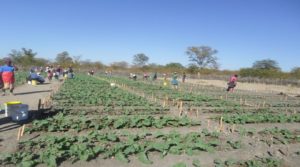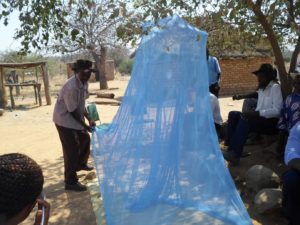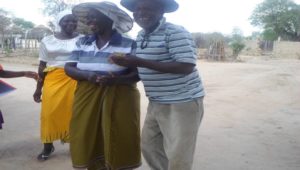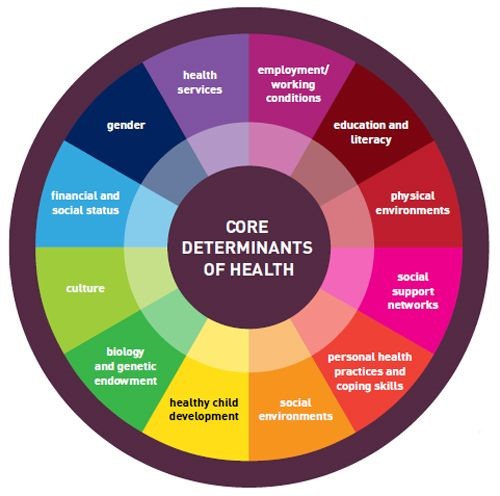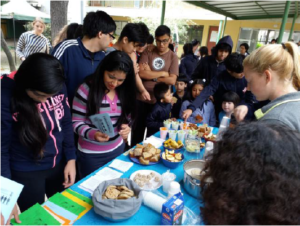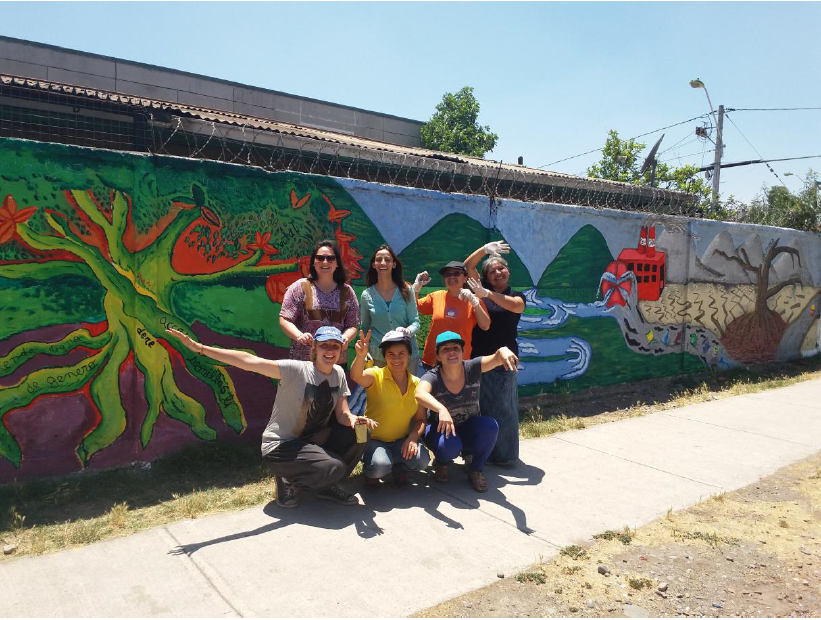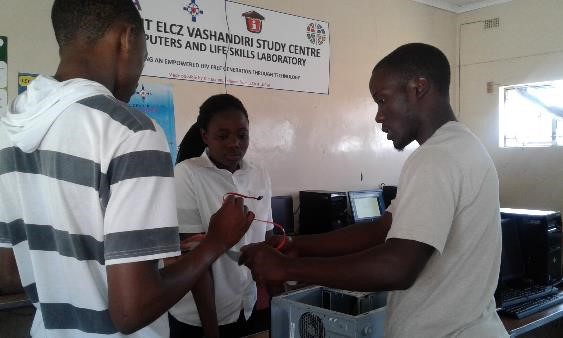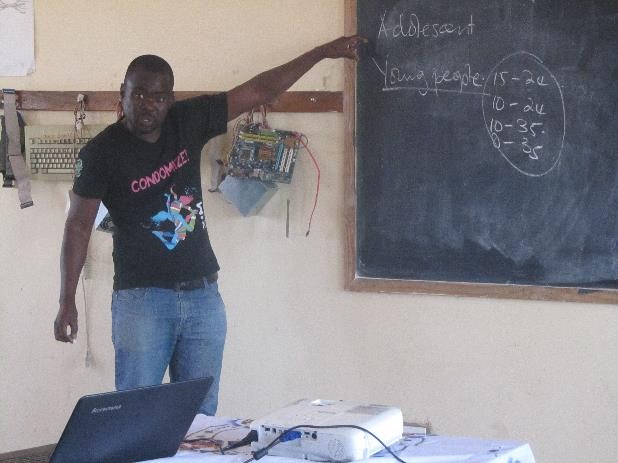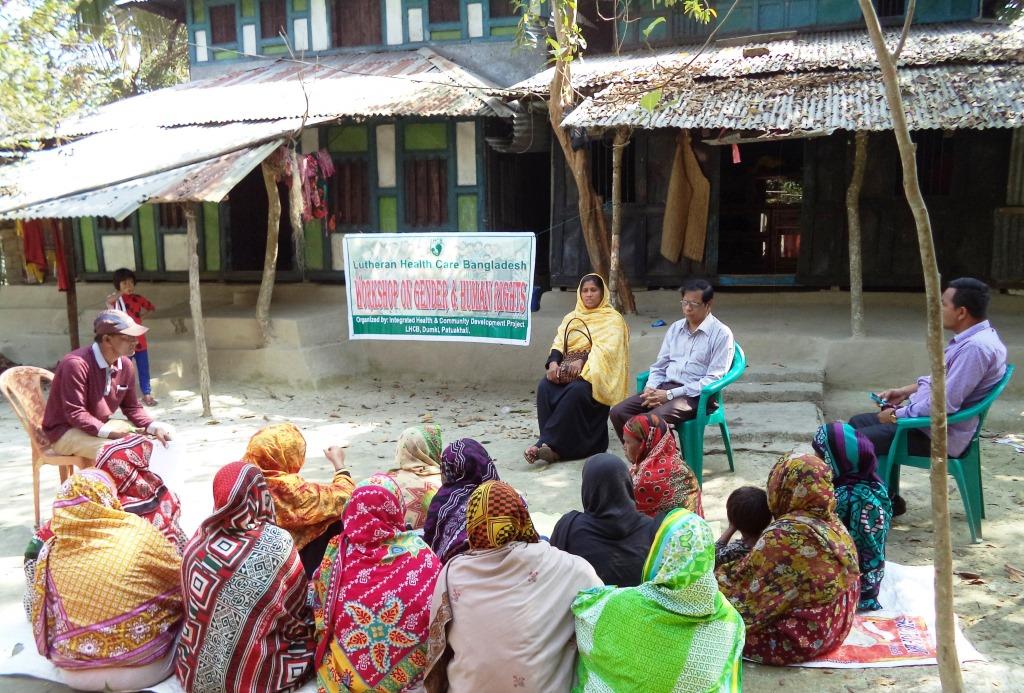As we celebrate World Malaria Day, I cannot forget the words of Ryunosuke Satoro who said, “Individually we are one drop. Together we are an ocean” Together we can end malaria for good.
-Yeukai Muzezewa (Evangelical Lutheran Church in Zimbabwe, Malaria Project coordinator)
From 2011 to 2015, the ELCA Malaria Campaign raised both awareness about malaria and gifts to support companion churches and partners in fourteen countries to combat this disease. These gifts continue to support projects in countries faced with the daunting challenges posed by malaria. This World Malaria Day, we celebrate this important work that continues through the ELCA’s companion churches. We especially give thanks for Shoni Ngobeni, the Malaria Coordinator for the Lutheran Communion in Southern Africa (LUCSA), who compiled this post from reports from LUCSA member churches.
Since 2011, the ELCA has been accompanying six member churches of the Lutheran Communion in Southern Africa (LUCSA) as they respond to malaria in Angola, Malawi, Mozambique, Namibia, Zambia, and Zimbabwe. Since 2011, there has been a remarkable decline in morbidity and mortality related to malaria, particularly in these six countries.
The churches of LUCSA have played a role in that decline, and the work supported by the ELCA Malaria Campaign continues.
Yet, malaria continues to affect household livelihoods and education, especially because working adults and schoolchildren affected by malaria are often absent from work or school. In Malawi, malaria is still one of the major causes of morbidity and mortality, especially in children under five years of age, pregnant women and people living with HIV. There are approximately six million suspected cases treated annually, and malaria is responsible for 40% of all the hospitalizations of children under five years old and 34% of all outpatient visits across all ages.
Much work remains, but the success of LUCSA’s malaria programs so far is encouraging.
Strategies employed to achieve the success thus far include:
- Institutional Capacity Building
- Malaria Prevention and Control
- Malaria Case Management
- Sustainable Livelihood
The committed staff at the LUCSA secretariat office and of the member churches worked hard to build the capacity of the churches, congregations and surrounding communities through basic malaria awareness and education. This has enabled participants to take charge of their own health by preventing themselves from contracting malaria. The gap in knowledge was addressed, myths about malaria were dispelled, attitudes and behavior were remarkably changed, and participants laid the foundation for sustainable livelihoods to protect against future risk. Below are reflections and updates from two LUCSA member churches – the Evangelical Lutheran Church in Zimbabwe (ELCZ) and the Evangelical Lutheran Church in Malawi (ELCM).
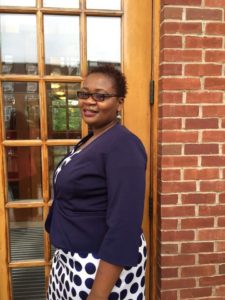 Yeukai Muzezewa, ELCZ Malaria Program Coordinator:
Yeukai Muzezewa, ELCZ Malaria Program Coordinator:
The ELCZ cannot fold its hands and retreat from fighting malaria; I also cannot do that, when outbreaks are reported every rainy season, when children under five years are still suffering bouts of convulsions, when communities are not able to plow their fields because of sickness due to malaria. It is not over until we completely eradicate malaria. The ELCZ malaria project has declared war against the malaria-causing mosquito, and our weapons are mosquito nets, awareness-raising, indoor residual spraying and early treatment options.
For a number of years now, the project has been working with more than 45,000 households in two dioceses. The project has been divided into four strategic pillars: institutional capacity building, malaria prevention and control, treatment, and sustainable livelihoods.
The first strategic pillar is based on the realization that communities are able to solve their own problems. It, therefore, aims at working with church and community structures to build their capacity to prevent and control malaria as well as reduce its effects. The project works with schools, churches, community volunteers, community leaders, health facilities and other community organizations.
Judith Jere, ELCM Malaria Coordinator:
With support from the ELCA, the ELCM Malaria Program contributed to the reduction of morbidity and mortality due to malaria, particularly among pregnant women and children under five years old, as well as among particularly vulnerable population groups. Congregations and surrounding communities are empowered to reduce the risk and vulnerability to malaria infection and to alleviate the impact of the disease on the affected households, with a strong focus on children under five years, pregnant women and disadvantaged people from the hard-to-reach areas, based on the four strategic pillars (see above.)
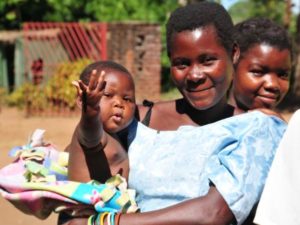 Major achievements from the program include:
Major achievements from the program include:
- Behavior change: Many achievements have been recorded from the community in terms of increased knowledge, changes in behavior, and an awareness of the myths and misconceptions about the diseases.
- Net distribution: Use of nets for children has increased from 55.1% in 2011 to 88% in 2015, and from 33% in 2011 to 84% in 2014 for the general population.
- Treatment support: The proportion of pregnant women who received two or more doses of intermittent preventive treatment has increased from 41% in 2011 to 73% in 2014, indicating that more pregnant women are protected from malaria during pregnancy.
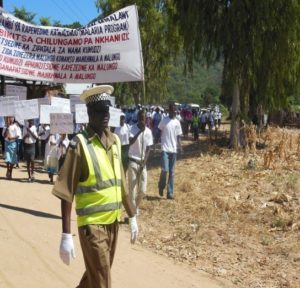 Advocacy: When the program started, the government had not yet rolled out Rapid Diagnostic Tests (MRDTs) in the village clinics because Health Surveillance Assistants (HSAs), who are in charge of these clinics, had not yet been trained. Following a solidarity walk by the ELCM to advocate for training and use of MRDTs, it is pleasing to note that more than 80% of the HSAs are now able to diagnose malaria using the MRDT and are no longer treating malaria patients based solely on clinical symptoms. This was a great experience of effective advocacy creating meaningful change!
Advocacy: When the program started, the government had not yet rolled out Rapid Diagnostic Tests (MRDTs) in the village clinics because Health Surveillance Assistants (HSAs), who are in charge of these clinics, had not yet been trained. Following a solidarity walk by the ELCM to advocate for training and use of MRDTs, it is pleasing to note that more than 80% of the HSAs are now able to diagnose malaria using the MRDT and are no longer treating malaria patients based solely on clinical symptoms. This was a great experience of effective advocacy creating meaningful change!
The introduction of the fourth strategy, the sustainable livelihood pillar of the malaria program, has brought a remarkable change to the income status and livelihood of the Lutheran congregants and surrounding communities. It improved the capacity of people in poverty to earn and save income.
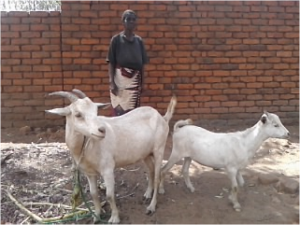
Christina M’bwana, a participant in the Mwaiwathu Village Savings and Loan Association (Malawi), stands with her goats. “I am very happy that through my membership in the savings group, my family has attained our long-term goal,” she says. “These goats will help my family in very critical situations, such as hunger, illness and school fees for children.”
Conclusion: Shoni Ngobeni LUCSA Malaria Coordinator:
Looking back at where the journey started, LUCSA and the member churches really appreciate the financial support and the technical support offered by our faithful and committed partners at the ELCA. We would really appreciate more support in the form of funds and accompaniment as we harness the lessons learned and build our capacity to raise funds locally to continue with the journey towards the elimination of malaria. The Communion Office of LUCSA continues to facilitate the member churches to further invest in the strengthening of community support structures and organizations as part of the transition from the campaign phase.
ELCA World Hunger thanks Judith, Yeukai, and Shoni for sharing their hard work with us for this blog post. Photos are courtesy of ELCZ (credit: M. Ndlovu) and ELCM.

